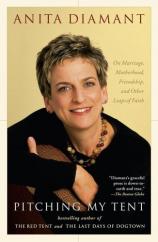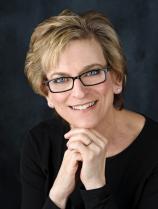Reading Group Guide
Discussion Questions
Pitching My Tent: On Marriage, Motherhood, Friendship, and Other Leaps of Faith

1. Diamant writes: "I had very little formal religious education." Why, then, do you think religion comes to play such a large role in her understanding of the world? If there wasn't a great deal of religious schooling in her youth, what events and influences eventually transformed her approach to faith?
2. Family is a blessing for Diamant, but she is candid about the occasional struggles posed by married life. She says, "religious ritual and affiliation are mainstays of our marriage." Cite specific examples of how this is true. Also, discuss additional tools, aside from faith, used by the author to keep her marriage strong in the face of adversity.
3. Of her daughter, Diamant writes: "After her bat mitzvah, Jewish observance became more and more a matter of her own choosing. I can remind and I can nag, I can and do put my foot down when it's important enough. But ultimately she will choose how to be Jewish for herself." Does Diamant seem at ease with this truth? How do you think her style of parenting will eventually affect Emilia's spiritual life? How did the influences of your family shape your own religious thought?
4. What role does humor play in religion for Diamant? How does she reconcile this with more serious practices? Are the two inextricably linked?
5. In the case of the essay on Columbine and elsewhere, how does Diamant balance preparing her daughter for the world and protecting her from it? In what ways is she excited about Emilia's burgeoning independence, and in what ways does she fear it?
6. Many of these essays deal with the balance of tradition and change -- in religion, family, and career. How does Diamant deal with change in each realm? In general, does she approach it with more enthusiasm or sadness; more remorse or peaceful acceptance? How has change itself determined the details of Diamant's life?
7. How is the author's experience filtered through her role as a member of her generation? How might many of her personal and cultural insights have changed if she had been born 20 years earlier, or 20 years later? How might her experience in a different era presented greater or lesser obstacles to the type of life she has created?
8. Was the structure of the book's six sections helpful in your understanding of her viewpoint? Which cluster of essays seemed the closest to her heart, if any? Where was there overlap between the sections?
9. What role does ancestry play in Diamant's life? In what way is she most proud to be like her ancestors? In what way is she most proud to be different?
10. In "The Communal Route," Diamant discusses living in a commune-like environment. In a later essay, she writes: "without a communal circle...even the fondest family can become claustrophobic." How does this need for communal affection manifest itself in her life -- both in her family and the larger community? Choose examples from the essays to illustrate your point. Does Diamant's life seem more or less strongly based on communal ties than most people you know? If more, in what ways do you think people should take better advantage of those ties?
11. The cumulative effect of these essays is a well-rounded view of Diamant, as if you had spent a long time in her company. What about her style or views allows for such an intimate look into her life? If you were writing a similar collection of essays, which three subjects would dominate, and what would you have to say about them?
Pitching My Tent: On Marriage, Motherhood, Friendship, and Other Leaps of Faith
- Publication Date: September 13, 2005
- Paperback: 240 pages
- Publisher: Scribner
- ISBN-10: 0743246179
- ISBN-13: 9780743246170








